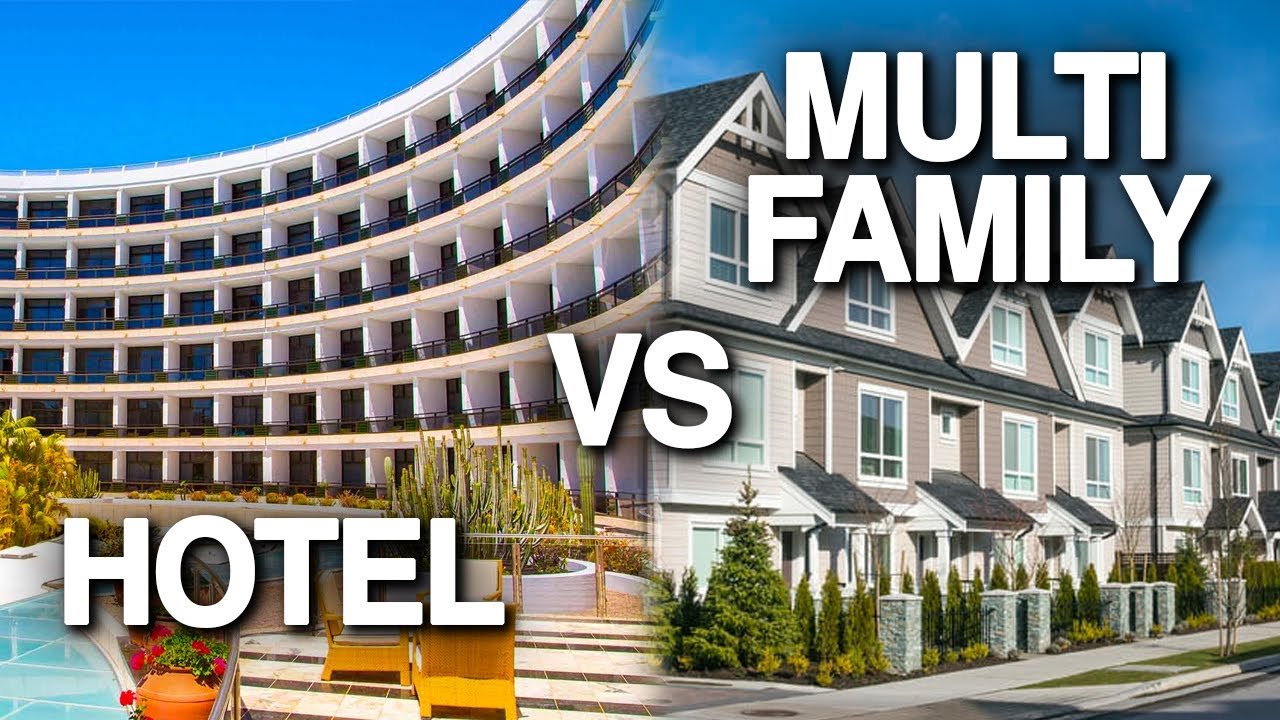
Hotel vs. Multifamily Investments: Which Is Better for Passive Income?
When it comes to building long-term wealth, passive income from real estate continues to stand out. For accredited investors, two asset classes often lead the conversation: hotels and multifamily properties. While both offer opportunities for recurring cash flow, capital appreciation, and tax advantages, they differ significantly in structure, demand cycles, and lifestyle benefits.
So, which is better for passive income hotel investments or multifamily real estate?
Let’s explore.
Understanding the Basics
What Is a Multifamily Investment?
Multifamily investing involves acquiring residential properties with multiple units—such as duplexes, apartment buildings, or high-rise towers. Investors typically earn income through monthly rents and long-term value appreciation.
What Is a Hotel Investment?
Hotel investments, particularly through syndications or real estate opportunity funds, involve pooling capital with other investors to acquire, reposition, or develop a hospitality asset. Income is generated through nightly bookings, conference rentals, and in many cases, brand partnerships like Marriott or Hilton.
At Qila Capital, we specialize in identifying hospitality and healthcare investment opportunities that deliver strong risk-adjusted returns and meaningful passive income.
1. Income Structure & Cash Flow
Multifamily: Stable But Capped
Multifamily properties tend to offer predictable, steady cash flow. Leases are usually signed for 6 to 12 months, providing consistent rental income. However, rent growth is often constrained by local regulations or tenant turnover.
Hotels: Dynamic with Upside
Hotels generate daily cash flow. Rates can be adjusted in real time, allowing for dynamic pricing based on demand. Business events, holidays, or local festivals can significantly increase revenue.
Moreover, investors in branded hotel assets, like those offered through our current opportunities, benefit from higher occupancy and pricing power driven by strong brand loyalty (Marriott Bonvoy, for example).
Winner for Higher Passive Income Potential: Hotels
2. Recession Resilience
Multifamily: Historically Safe
During economic downturns, demand for rental housing often remains stable. In fact, multifamily tends to perform well in recessions as more people choose renting over buying.
Hotels: Depends on Location & Type
Not all hotels are created equal. Luxury resorts may struggle in a recession, but extended-stay hotels near airports, universities, and hospitals often maintain strong occupancy. Our own investments in Aloft by Marriott near San Antonio Airport demonstrate the power of recession-resistant hotel assets.
Explore our About page to learn how we protect investor capital in all market conditions.
Winner for Stability: Multifamily, with the right hotel subtypes as close contenders
3. Management and Operations
Multifamily: Property Management Required
Even with a property manager, tenant issues, maintenance, and regulatory compliance can impact returns and investor experience.
Hotels: Professionally Managed Turnkey Assets
Hotel assets are typically managed by professional operators with hospitality experience. As an investor, you’re not fielding calls about plumbing problems—you’re receiving quarterly distributions and enjoying travel perks.
Plus, investors with Qila Capital often benefit from discounted stays across dozens of Marriott-branded hotels.
Winner for Truly Passive Experience: Hotels
4. Tax Benefits
Both asset classes offer generous tax advantages, including:
- Depreciation
- Mortgage interest deductions
- Cost segregation studies
- 1031 Exchanges
However, hotels may allow faster accelerated depreciation, especially when substantial renovations (like lobby remodels or new FF&E) are involved.
Winner for Short-Term Tax Shielding: Hotels
5. Lifestyle Perks
Multifamily: Limited to Financial Returns
Multifamily investors primarily benefit from cash flow and equity growth. There are no lifestyle perks associated with the asset itself.
Hotels: Travel Benefits & VIP Access
Hotel syndications especially those involving major brands can come with deep travel perks such as:
- Discounted or free stays
- VIP check-in and upgrades
- Loyalty points for personal use
- Invitations to investor events at luxury resorts
Can you monetize these perks? Not directly but they add meaningful value for high-net-worth investors who prioritize lifestyle alongside returns.
Winner for Lifestyle: Hotels
Exit Strategies and Liquidity
Multifamily: Straightforward Sales
Multifamily properties can be refinanced or sold in the open market, often with plenty of buyers and institutional interest.
Hotels: Higher Upside, Slightly Lower Liquidity
Hotel deals may take longer to sell or refinance due to their complexity. However, branded hotels in high-demand markets often command a premium exit price, especially after successful repositioning.
At Qila Capital, our investment strategies include clear exit plans and defined hold periods to align with investor expectations. Learn more by reviewing our active opportunities.
Winner for Predictable Exits: Multifamily
So… Which Is Better?
Criteria | Winner |
Passive Income Potential | Hotels |
Recession Resilience | Multifamily |
Management Simplicity | Hotels |
Tax Advantages | Hotels |
Lifestyle Perks | Hotels |
Exit Liquidity | Multifamily |
If you’re looking purely for stable, predictable income, multifamily might suit your goals.
But if you want higher upside, recession-resistant subtypes, and luxury travel perks along with strong passive income, hotel syndications are a compelling choice especially when backed by trusted operators.
Ready to Diversify with Hospitality?
At Qila Capital, we help accredited investors tap into high-performing hotel and healthcare investments that prioritize capital preservation, reliable returns, and lifestyle value.
Explore our opportunities or schedule a discovery call to learn more.
FAQs
Is hotel investing riskier than multifamily?
It can be but risk varies by market, asset type, and operator experience. Extended-stay or airport hotels often show similar stability to multifamily.
Can I invest in a hotel with my retirement account?
Yes! You can use a self-directed IRA or solo 401(k) to invest in hotel syndications preserving tax advantages while earning passive income.
What’s the minimum investment for a hotel syndication?
It varies by deal. At Qila Capital, minimums typically range from $50,000 to $100,000 depending on the offering.
Do hotel investors receive distributions monthly or quarterly?
Most hotel syndications pay out quarterly, though the schedule can vary based on performance and structure.
Can I visit or stay at the hotel I invest in?
In many cases yes! Especially if the sponsor has negotiated brand perks. Qila Capital ] “Hotel vs. Multifamily Investments: Which Is Better for Passive Income?”
Recent Posts

How to Choose the Best Hotel Investment Company for Passive Income


